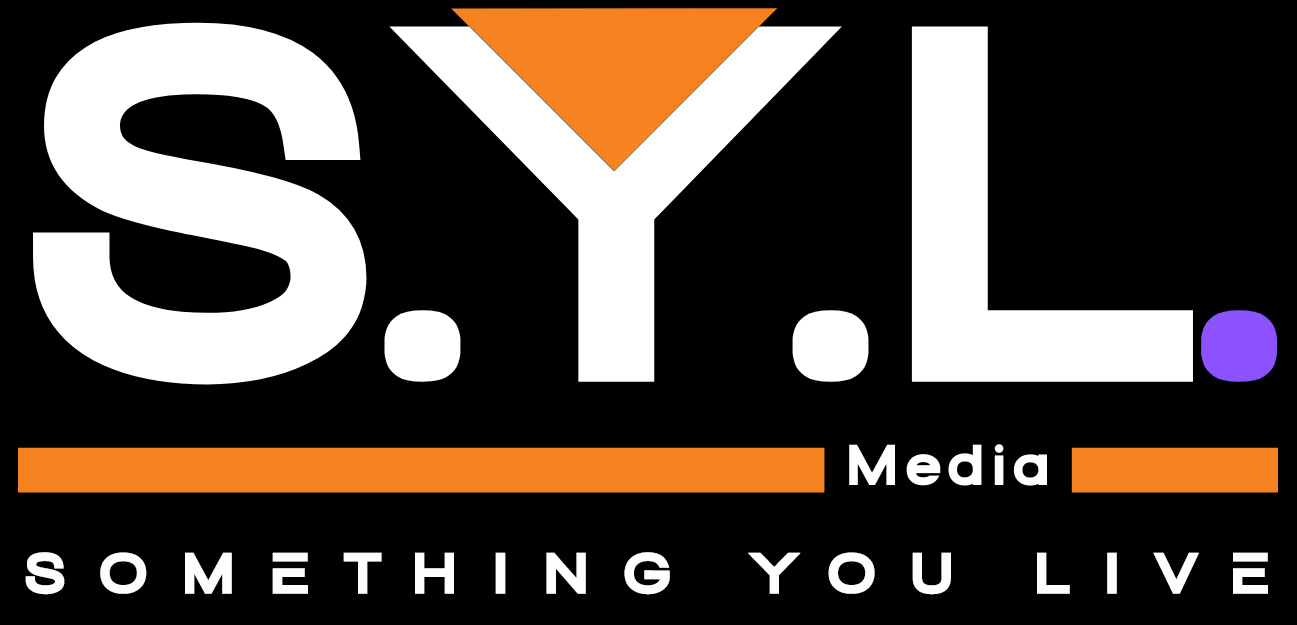Sia Savvy, a leading example of Black excellence and a first choice for authentic cultural filmmaking, has made a significant mark on the entertainment industry. Taking a leap of faith into the world of television, she discovered that unscripted production allowed her to connect with viewers through honest and captivating storytelling.
Recently, you gave a little bit of insight into the extensive list of your unscripted productions, from Black Ink Crew to Fatal Attraction to Documentaries. What have you been able to take from those shows that have helped you in producing your own projects now?
I’ve worked across just about every corner of unscripted—reality TV, docuseries, true crime, you name it. Each genre brings its own challenges and creative demands, but what I’ve learned is this: no matter the format, your voice better show up. Whether it’s a high-gloss reality show or a gritty documentary, It’s important to adapt to the production style while keeping the story rooted in truth and authenticity. That approach has allowed me to thrive in this industry—and more importantly, stay in love with the work. I don’t just follow trends; I bring my own perspective to every project and make sure the storytelling reflects something real, fresh, and worth watching.
It definitely does. You started your own savvy media group in 2020. What was the moment that made you say, “I’m ready to do this on my own”?
I’d been working in the business for a while, taking on projects and building my experience, but over time, I started thinking more deeply about the kinds of stories I truly wanted to tell. Not just what I was hired to do—but the stories that lived in my heart, the ones I felt were missing from the landscape. That realization pushed me to take the leap and start Savvy Media Group. It gave me the space to collaborate with other creatives and production partners in a way that feels aligned with my voice and values. It’s been an incredibly fulfilling journey, and I’m proud of the stories we’re building together.
What inspires your storytelling, and how do you approach developing a unique creative vision for your projects?
I’m deeply inspired by stories that center women, people of color, and LGBTQ voices—especially the ones that don’t always get the spotlight. I have a strong passion for telling stories about young Black women in particular, because too often our experiences are either overlooked or told through a lens that isn’t ours. I want to shift that.
When I approach a new project, I think about what’s being said—and just as importantly, who’s saying it. My goal is always to tell stories with honesty, with respect, and in a way that feels real and reflective of our communities as they are today—not just how they’ve been historically portrayed. Our culture has evolved. We’ve grown, changed, and redefined ourselves in so many ways. I want to tell stories that reflect that evolution—what’s new, what’s current, and what’s possible.
Tell me about a tough situation you ran into while working on a project.
One of the biggest challenges I’ve faced is having to push back against narrow ideas of what Black stories are “supposed” to look like. A lot of networks and production companies come in with preconceived notions—stories they’ve seen before, or what they believe Black culture should be on screen. But the truth is, we’re not a monolith. Our communities have evolved, and our stories are wide-ranging, layered, and full of nuance.
The tough part is convincing decision-makers that stories outside of their comfort zone are still worth telling—and worth being heard. That’s where I do some of my most important work: advocating for stories that expand the narrative and reflect the full spectrum of who we are.
Okay. Let’s talk about Left for Dead. When that was brought to you, what were your feelings?
When I talk about Left for Dead, I always start by acknowledging Robert Twilley and Todd Moss, the executive producers who brought the project to me. They absolutely deserve credit—not just for seeing the importance of the story, but also for recognizing that “This story needs to be told by a Black woman.”
That alone meant a lot. But more than that, Left for Dead gave me the opportunity to shine a light on something much bigger—the thousands of Black women who go missing in this country and are consistently overlooked by both media and law enforcement. These stories are often ignored, under-reported, or dismissed altogether. With this film, I was able to not only center two individual cases but also amplify a larger conversation about whose lives are deemed worthy of urgency and visibility.
When they asked me to direct, I was genuinely honored. And I was proud that Tubi Originals stood behind it and believed this was a story worth telling. It was a project rooted in purpose—— and I felt grateful to bring it to life with care, respect, and truth.
That’s a big responsibility for anyone, especially someone immersed in the culture.
It absolutely was—and I didn’t take that responsibility lightly. From the very beginning, I knew I was being trusted with something sacred. I’m incredibly proud of what we created. And I’m even more proud that we were able to give these women the visibility and depth their stories deserve.
That’s also heavy. Did working on this project affect you personally in any way?
Yes—it definitely had a personal impact. When you spend time with families like Unique Harris’s and Pamela Butler’s, you build real relationships. They trusted me with their pain, and that’s not something you can just turn off at the end of the day.
It’s emotional work. Over time, I’ve learned how to hold space for those stories while still protecting my own mental health. It’s a delicate balance, but a necessary one in this kind of storytelling.
So, how do you keep yourself grounded? It seems like most, if not all, of the projects that you’re taking on are heavy material.
Not all of my work is heavy—some of it has been a lot of fun. I’ve had a great time working on Why Not Us? and my current ESPN sports doc has been such a joy to shoot. I also recently produced on a BET home design series, which was a lighter, more creative space that I really enjoyed.
That said, you’re right—most of my background is in true crime, and it can be emotionally draining. To stay grounded, I prioritize time with my family, meditation, and doing things that bring me joy. It’s important to take care of myself so that the weight of the work doesn’t consume me.
Okay. You did mention that you were doing a sports project. Is that what’s coming out in May?
Yes—Full Court Press Season Two premieres on May 3rd, and I’m incredibly proud of this project. We’re following three standout college basketball players, each of whom is a star in her own right. I’m the dedicated producer for Kiki Iriafen, a power forward at USC, an All-American, and one of the top players in the country.
This is her final college season before entering the WNBA draft, and we’re documenting her entire journey—from the court to the draft stage. It’s such an exciting time for women’s basketball, and I’m honored to help tell her story at this pivotal moment.
So, you’re going to be covering up to the beginning of her professional career?
Yes, we’ll be filming Kiki through the WNBA draft, and that will absolutely be part of her story. We’re currently capturing her journey through March Madness, following her and her team as they fight for a championship. Naturally, I’m rooting for her—she’s my girl, and I’ve been dedicated to telling her story from day one.
The show also features Flau’jae Johnson from LSU and Hannah Hidalgo from Notre Dame—two incredible athletes and rising stars in their own right. Each of the three players has her own producer focused on developing her narrative, so while we’re telling individual stories, we’re also all rooting for each other behind the scenes.
It would be amazing if all three of them made it to the Final Four. Of course, there can only be one champion, and yes—I’m cheering for Kiki. But no matter who makes it to the top, I’ll be proud. They’re all extraordinary young women, and that’s what this series is really about: celebrating their journeys.
What do you think this is going to do for women’s basketball?
I think it’s such an exciting time for women’s basketball—it’s finally getting the attention it deserves. Last year, the women’s NCAA tournament pulled more viewers than the men’s for the first time ever, and that says a lot.
These young women are playing their hearts out, making history, and now, with NIL deals, they’re also building their futures in ways that weren’t possible before. My hope is that this show helps keep that momentum going—by giving them the space to be seen, celebrated, and fully understood, both on and off the court.
What do you have planned next?
I have a few projects in the works that I’m really excited about. One of them is a new series I’m developing with my producing partner, Syleecia Thompson, centered on the incomparable Syleena Johnson. She just dropped an Amapiano album—a vibrant genre born in South Africa—and the show will follow her as she explores this new creative chapter.
Wow, so you will be in South Africa to film her show.
Yes! We’re planning to film in South Africa, which makes the project even more special. The show is still in development, and we’re aiming to go into production this fall. I have a few other things in motion as well, but this is definitely one of the projects I’m most excited about right now.



